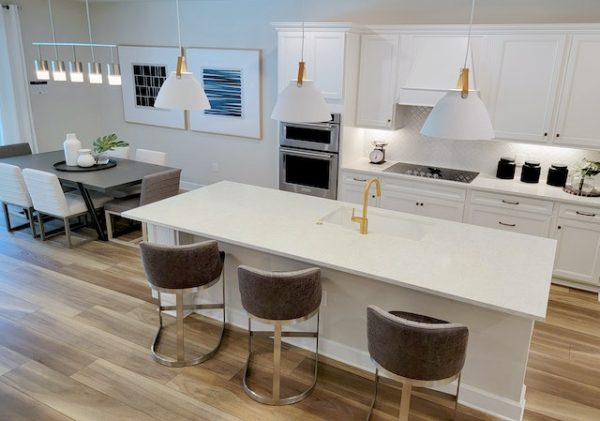It is possible that after the fateful year 2020 you are thinking about looking for a home to become independent, improve your quality of life or finally become the owner of your home.
In any of these cases before starting the search for your ideal home it is important to make a segmentation appropriate to your personal and professional profile. This will take you directly to visit properties that fit your characteristics with the consequent gain of time.
Is it necessary to have savings to get mortgage financing? What is the amount of equity that banks require to start talking?
Analyze your budget
How much money do you have to buy your new home? What is the maximum mortgage amount you can apply for based on your credit profile? These are perhaps the first two questions you should reflect on before going to any financial institution.
There are different alternatives to calculate what your maximum budget would be. Today you can find on the internet multiple digital tools in which entering a series of data calculate your upper debt limit in real time.
Why is it important to have savings to apply for a mortgage?
You may think that if you had savings you would no longer have the need to go to a bank in search of financing, so it seems an incongruity that entities demand savings from their customers to offer a mortgage loan.
The reality is that currently if the mortgage is granted to you, banks do not offer more than 80% of the price of the house or its appraised value, so you would not have enough amount to acquire it. This means that the other 20% is the one you have to contribute on your own.
A greater you must add 10% more expenses that are associated with the mortgage such as taxes, fees, opening and general management of the loan, in short and making calculations, you must have 30% of the total purchase amount in savings.
Does this mean that if I have no savings they will not grant me the mortgage?
It is very likely that this will be the case, however, there are other formulas to get the bank to grant financing for a percentage higher than 80%. Let’s look at some of them:
- Buy yourself a floor from the bank: as a result of the last real estate crash, financial institutions have a large number of real estate in their assets. Only in idealista there are currently about 30,000 bank properties for sale, and most are houses and flats, however, the real estate business is not the primary objective of banks, so they offer homes at an affordable price and with better financing conditions. Think that the financial institution is the first interested in getting rid of these properties so it will most likely offer a percentage of financing higher than 80%.
- Offer another property as collateral: If you have another property that is not mortgaged or you are about to cover its financing, you can offer it to the bank as collateral. It is an alternative in the event that you have equity but not cash. If you opt for this option, you must bear in mind that you are putting at risk both real estate, the new one for which the mortgage is requested and also the one you provide as collateral.
- Get a guarantor: it is usually the closest relatives who lend themselves to guarantee the loan. In this way they will fully respond with their assets to any non-payment you may make. Banks do not accept any profile as a guarantor. They must have solvency and economic stability. Another option is that of the partial guarantor. This figure guarantees a part of the loan for a limited time of the duration of the loan.
- Apply for a personal loan: there are those who request a personal loan in one entity and then apply for a mortgage loan in another and thus be able to contribute their own funds. It may seem like a good idea but if the bank knows that the origin of your savings is a personal loan it is very likely to reject the financing.
- Ask for the help of a mortgage intermediary: this is undoubtedly the best option because we are talking about professionals who know the market perfectly and are used to dealing and negotiating with banks to get the best conditions. They will also study your credit profile so that you know in advance what your possibilities and best options are.
The key is to know what you can afford and what you can’t. A mortgage loan will occupy a good part of your life so making the best decision requires reflection and putting yourself in the best hands.
